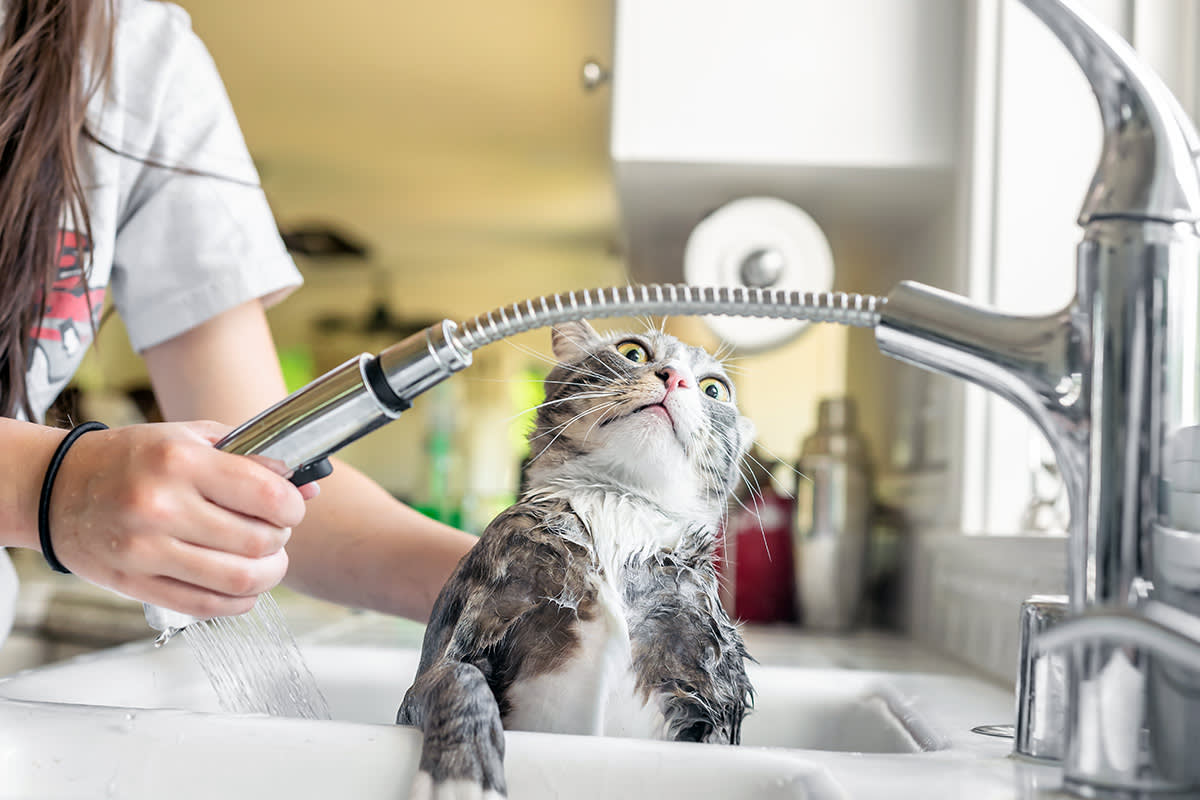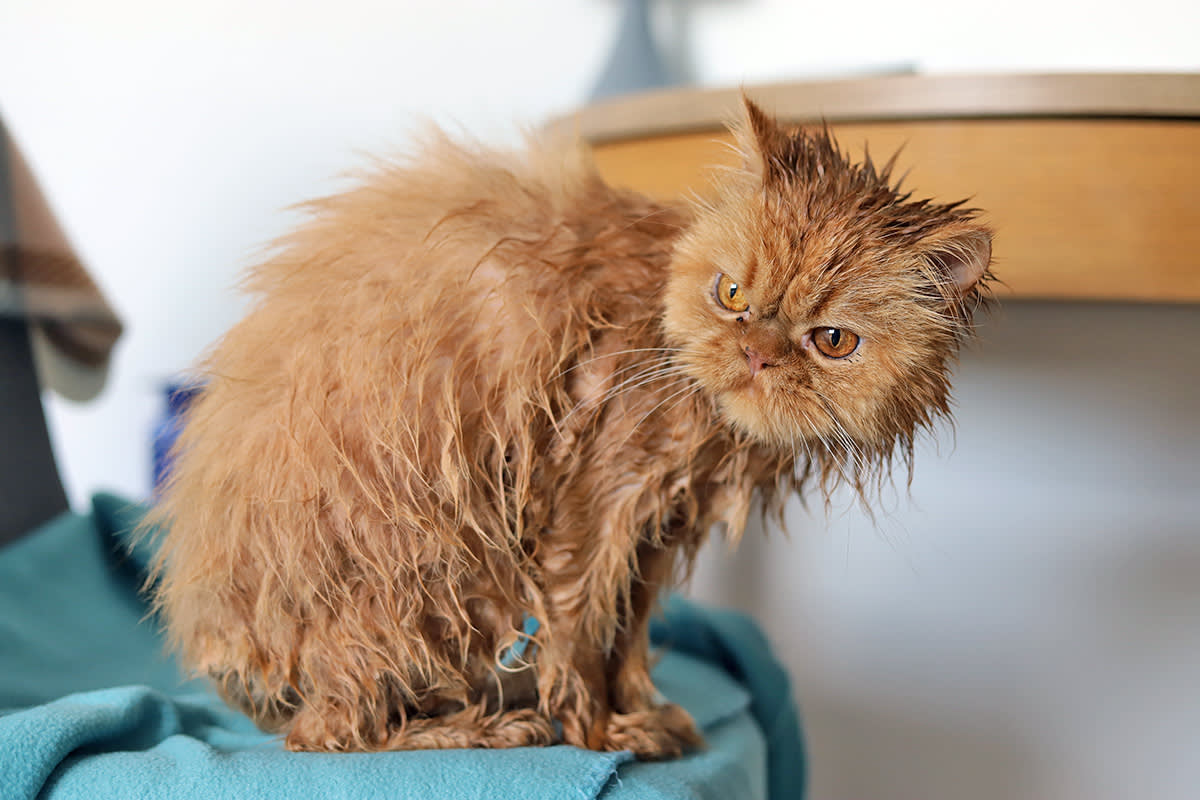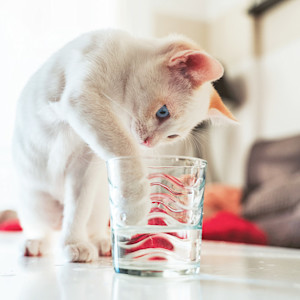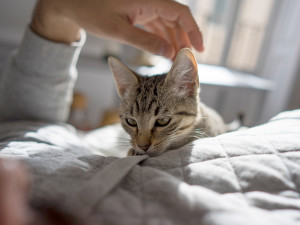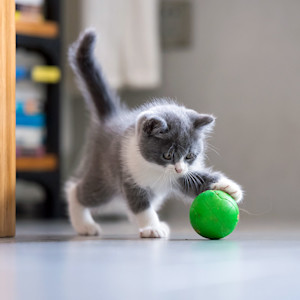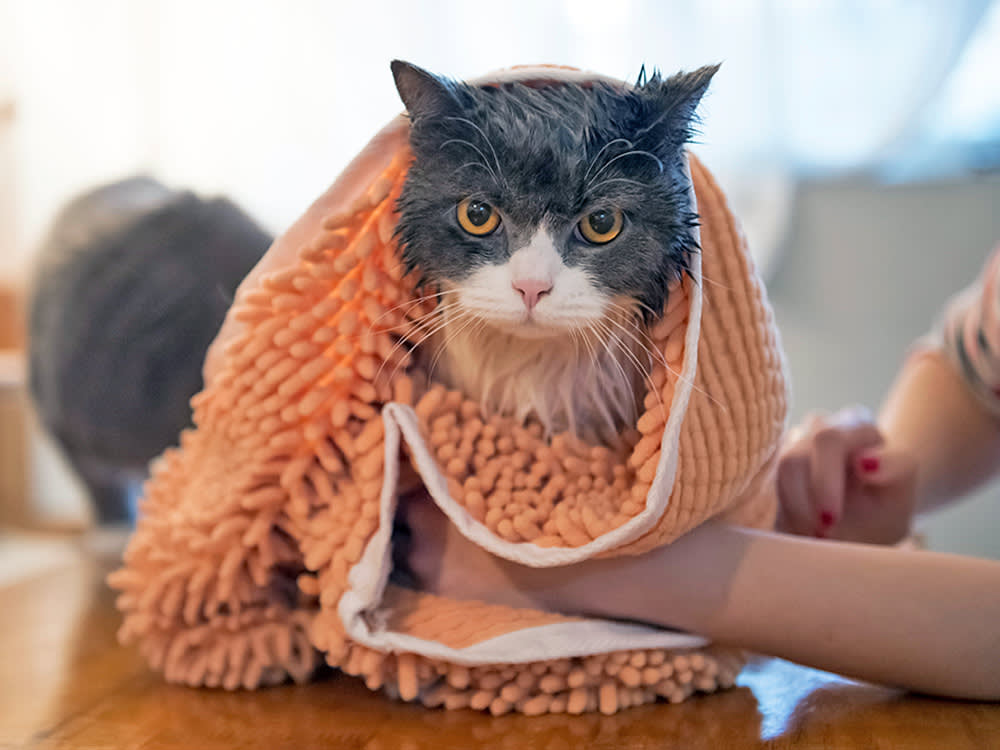
Share Article
I like to think of myself as somewhat of an expert on cats. After all, not only do I share my home with three of them, I write about them; I’d better know what I’m talking about! There was a time, though, when I really, really did not know much about cats. Back then, I’d never interviewed a veterinarian about things that hurt cats’ feelings or researched an article about the subtleties of slow-blinking to tell your cat you love them.
It was during this time that my kids and I adopted a cat who fell into our toilet the first day we brought her home. In our ignorance, we tried to give her a bath.
As you might imagine, it did not go well. Ever since, I’ve been militant about keeping our toilet lid closed whenever it is not in use — and I’ll never again try to bathe a cat, even if she did just go for an accidental swim in a toilet. (For the record, the toilet only had water in it at the time.) Why, though, do cats hate water so much? Is it just psychological? Do they think they’ll melt, like the Wicked Witch of the West? Are they afraid of water, or do they just not like it?
Cold, slow, and out of control
Dr. Nita Vasudevan, a veterinary consultant for Embrace Pet Insuranceopens in new tab, says there’s a good reason that most cats dislike water. “Their fur is not designed to dry quickly,” she explains. “When soaked, it becomes heavy, uncomfortable, and can lower their body temperature.” That last point is especially problematic, because healthy cats maintain a naturally higher body temperature than we do; around 100.5 to 102.5 degrees Fahrenheit is normal for them.

Think of how much cats love to lie around in patches of sunlight, getting super toasty to the touch, and then think about a wet cat, shivering under a heavy, chilly coat. Besides being uncomfortable, being wet can be dangerous for a cat, says Dr. Geri Katz, an advisor at Pet Honestyopens in new tab. “Safety also plays a role in their aversion,” she explains. “A wet coat adds extra weight, slowing them down in their attempt to escape predators. Similarly, being in slippery conditions would make it more difficult to run for safety.”
“Cats are naturally cautious animals,” Dr. Vasudevan says. “Being wet can make them feel vulnerable, since it reduces agility.” A wet cat also smells different than a dry cat, she explains, which they may perceive as unsafe. “The unfamiliar sensation of being soaked, combined with their preference for control, often drives the aversion.”
A very bad hair day for a cat
“In most cases, cats are only drawn to water for drinking,” says Dr. Nell Ostermeier, a veterinary advisor at Figo Pet Insuranceopens in new tab. But why? “Cats spend a lot of time grooming and cleaning themselves… [they] are fastidious creatures by nature, and getting wet is most likely unappealing for them.”
Water also disrupts the natural oils in a cat’s coat, which may make them feel unkempt, Dr. Vasudevan adds. I know how grouchy I feel when my bangs get wet right after I’ve blown them out, so I get it. Basically, cats are like the popular girls at my summer camp, who never wanted to put their heads underwater when we went to the pool, because they didn’t want to mess up their carefully feathered hair and winged eyeliner.
Exceptions to the rule
“In general, cats are not big fans of being in the water,” Dr. Katz says. “Because cats were originally desert-dwellers, they had no need for water. Even through domestication, they continue to prefer dry land to bodies of water.” However, she notes that this is not true for all cats.
“Cats with more water resistant coats, such as Maine Coons and Turkish Vans, can enjoy the water,” Dr. Katz says. “The Turkish Van is even nicknamed the ‘swimming cat.’” She adds that if you get your cat used to water when they are very young, at the same time they’re being socialized, they may grow up to be less resistant to water.
“Not all cats dislike water,” Dr. Vasudevan agrees, adding Bengals to the list of cats who “are known for being more tolerant of, or even enjoying, water.” She says that a cat’s individual personality plays a role as well. “Some cats may happily dip a paw in a water bowlopens in new tab or play with a dripping faucet, while others avoid water altogether.”
My cat does not fall into the camp of water-happy kitties. If I didn’t feel bad enough when I gave her tiny kitten body a full-blown bath after she fell into the toilet, I sure do now. Of course, she survived the experience, but I have to wonder: Does she ever have nightmaresopens in new tab about the day she took a dip in our toilet, and then got bathed in our kitchen sink? We cat parents do the best we can — and when we know better, we do better. Sorry, toilet kitten!
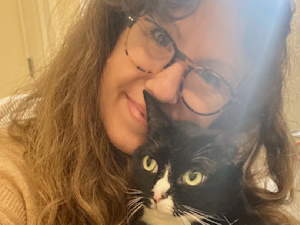
Elizabeth Laura Nelson
Elizabeth Laura Nelson is a writer and editor based in Brooklyn, New York, whose work has appeared in The New York Times, Jenny, Best Life, YourTango, Elite Daily, and more. She focuses her work on relationships, health and wellness, midlife, and lifestyle. As a child, Elizabeth was scared of cats (claws and teeth, yikes) but she has since gotten over her fear and now shares her home with three sweet and gentle feline companions who make life better (and cuddlier) every day.
Related articles
![Cute kitten sticking paw into water glass.]()
Why Do Cats Always Dip Their Paws in Water?
“Splish splash, I was taking a bath!”
![kitten sleeping on top of person]()
Why Does Your Cat Sleep on You? 7 Reasons and What It Means
Not into cuddling? Too bad—they’re spending the night.
Why Do Cats Lay On Your Chest?
That’s quite the cuddle.
![Cat making a disgusted face.]()
What Smells Do Cats Like and Dislike?
Yes, cats have a powerful sense of smell.
![Small kitten playing with a rubber ball at home.]()
Cats Can’t Stand These Textures—They Have Very Sensitive Paws
It's not just crumpled tin foil.
